Premier Nabbanja appeals for climate-resilient food hubs in refugee settlements
To date, Uganda is host to over 1.8 million refugees, becoming the World's largest refugee-hosting country.
The visiting Food and Agriculture Organisation (FAO) Director General, Dr Qu Dongyu, with his delegation, after a meeting with officials from FAO-Uganda, Ministry of Agriculture, Local Government and the Office of the Prime Minister at Kampala Serena Hotel. (Credit: Mpalanyi Ssentongo)
By Prossy Nandudu
Journalists @New Vision
_____________
Prime Minister of Uganda Robinah Nabbanja has called for support from the Food and Agriculture Organisation (FAO) to scale up climate-resilient food production hubs in refugee settlements.
The move will reduce the dependence of refugees on handouts that have declined due to reduced donor support in recent times. She appealed on Tuesday, July 22, 2025, while meeting FAO director general QU Dongyu at the Kampala Serena Hotel.
Nabbanja, who was represented by local government minister Raphael Magyezi, said while Uganda allocates land to refugees, the plots are too small for sustainable production, especially under the current challenges associated with climate stress.
She added that her office and FAO Uganda have developed the concept to establish climate-resilient food production hubs so as to boost access to nutritious foods like fish, milk, eggs and vegetables.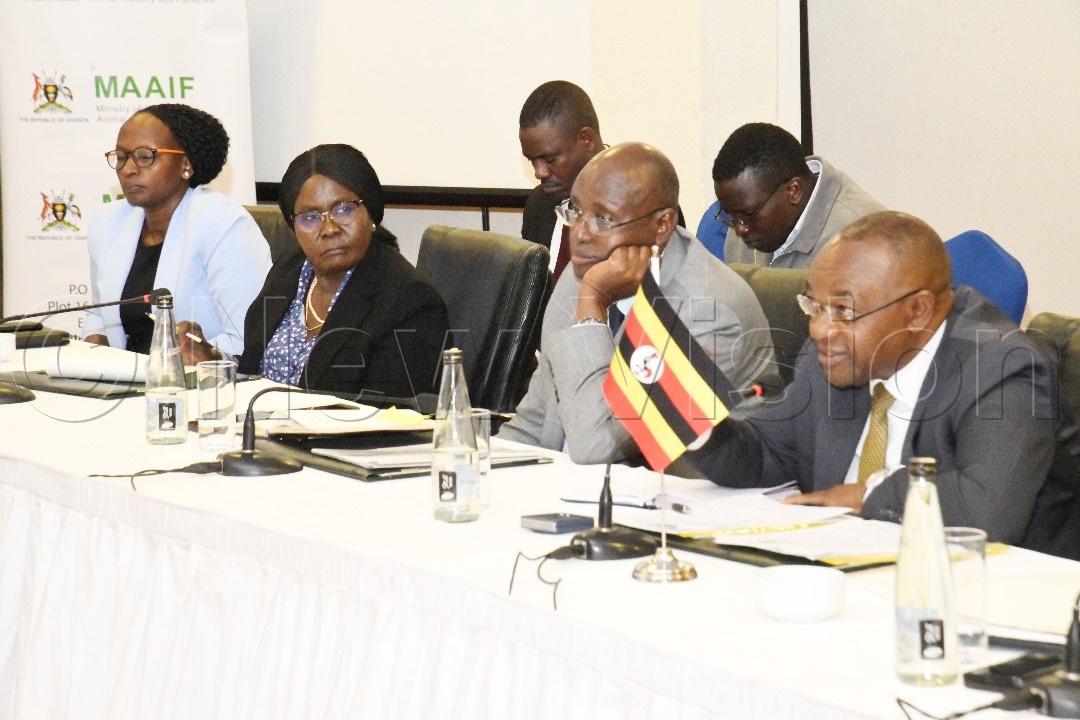
Left to right: Hon. Shartsi Kutesa Musherure, Amb. Elizabeth Paula Napayok, Uganda's Ambassador to Rome and Permanent Representative to FAO, IFAD &WFP, Hon. Bright Rwamirama, Minister of State for Animal Industry and Hon. Raphael Maguezi, Minister for Local Government (representing the Prime Minister Robinah Nabbanja), during the meeting. (Credit: Mpalanyi Ssentongo)
“I kindly request your continued support in mobilising resources to implement this initiative of climate resilient food production hubs, especially in the refugee settlements,” Nabbanja said.
To date, Uganda is host to over 1.8 million refugees, becoming the World's largest refugee-hosting country.
Nabbanja added that through the above initiative, women will also be skilled in climate-resilient and intensive agriculture production and value addition, so that rural women can access markets for their products.
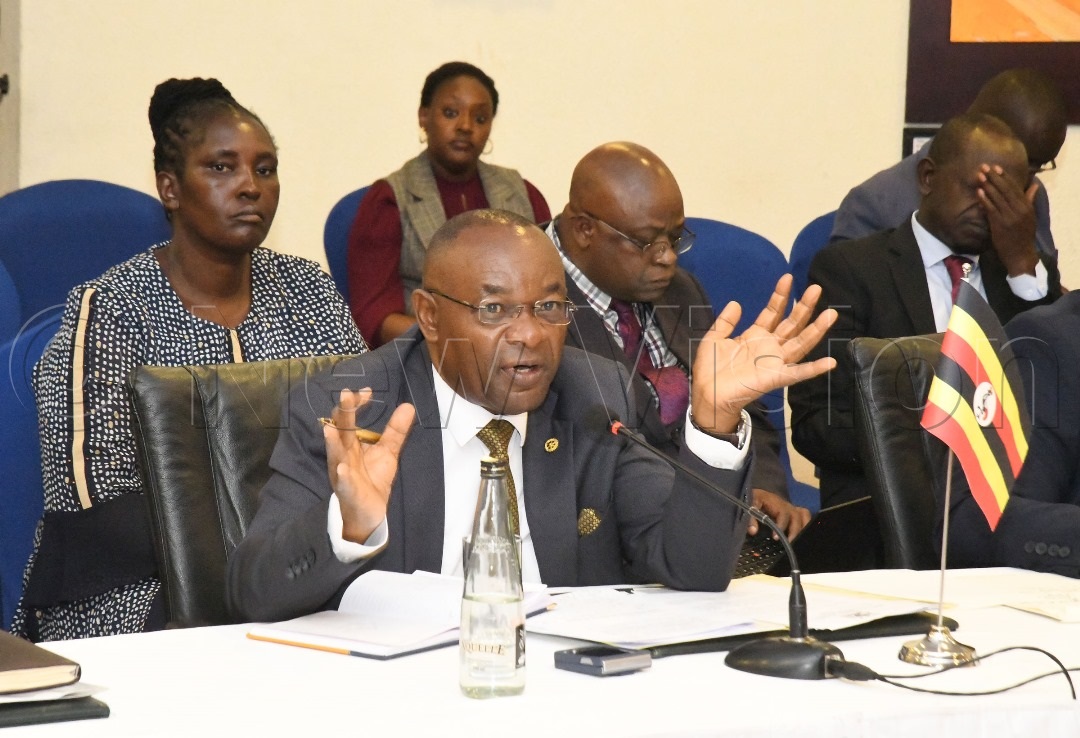
Local Government Minister Raphael Magyezi. (Credit: Mpalanyi Ssentongo)
The other area where she requested support is through employment creation, where she called for support to expand climate-resilient agroenterprises that will create jobs for Uganda’s unemployed youth, aged between 18 and 30 years of age, constituting 22.7% of the country’s population.
“We seek FAO support in expanding climate resilient agro-enterprises for the youth, including aquaculture, livestock production and small smart irrigation technologies in our affirmative action districts, that is northern Uganda, Karamoja region, Bunyoro region in the midwest, and districts in eastern Uganda,” Nabbanja said.
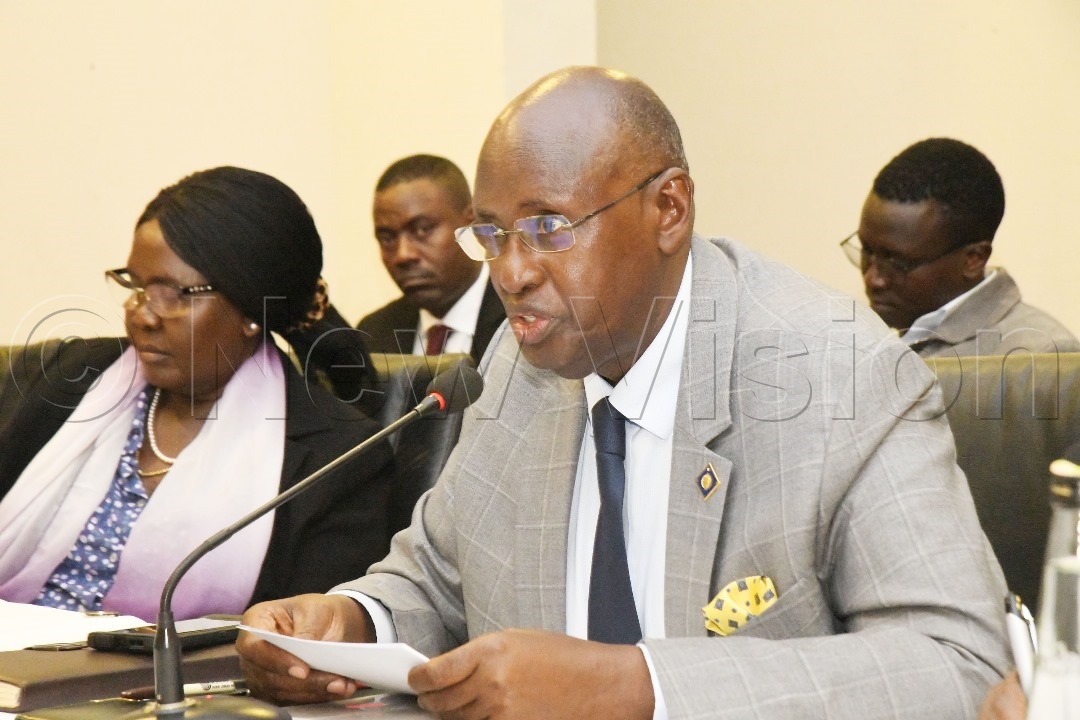
Animal husbandry state minister Bright Rwamirama. (Credit: Mpalanyi Ssentongo)
In the same meeting, animal husbandry state minister Bright Rwamirama called for support towards the management of transboundary diseases that affect mostly livestock and also crop pests, support towards animal feed production and processing, and also towards vaccine production. According to Rwamirama, the Government is in the final stages of establishing the anti-tick vaccine manufacturing unit.
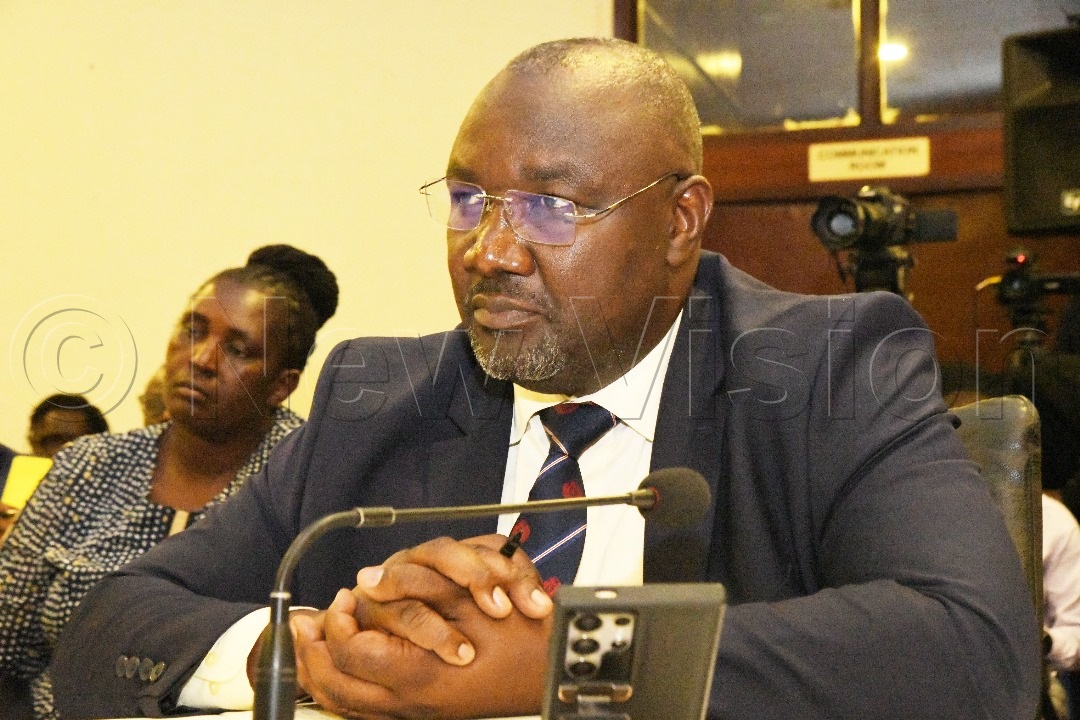
KCCA Deputy ED Benon Kigenyi. (Credit: Mpalanyi Ssentongo)
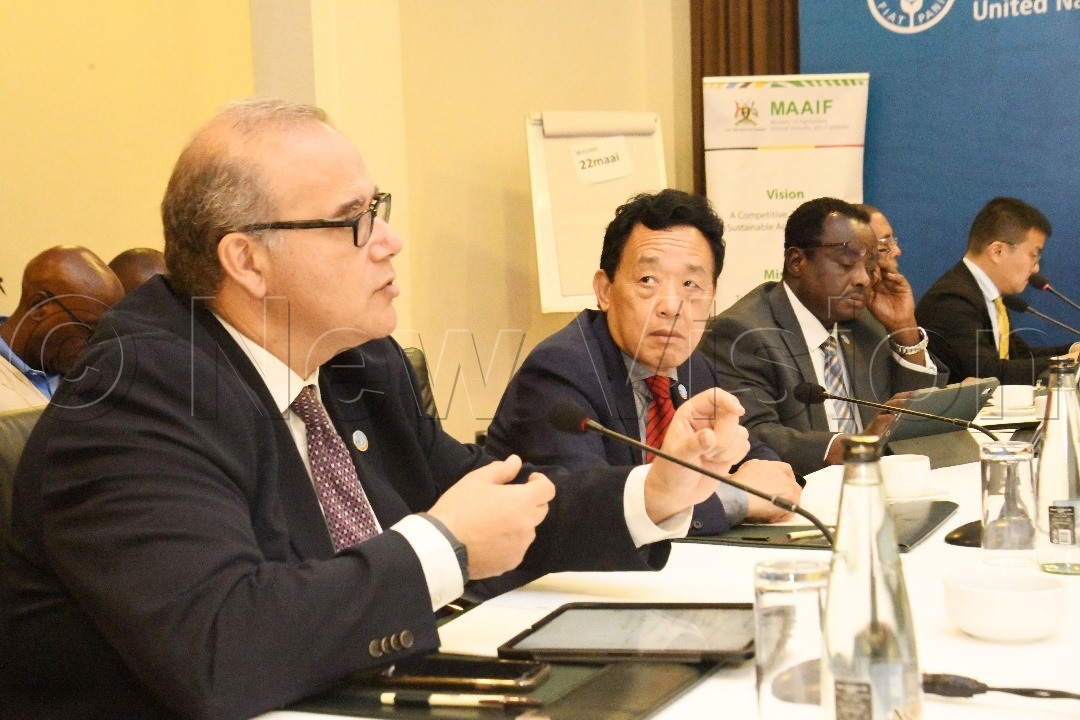
(Crediit: Mpalanyi Ssentongo)
When completed, the unit that will be stationed at the National Livestock Resources Research Institute will produce above 20 million doses of anti-tick vaccines annually, enough to vaccinate all the 14 million heads of cattle in Uganda today.
Other vaccine production lines in the pipeline include the foot and mouth disease vaccine.
Some of the support from FAO has been seen through research in which crops that are climate-resilient, nutritious and for exports have been developed, promotion of forestry restoration projects, support towards food security in Karamoja sub-region, among others.
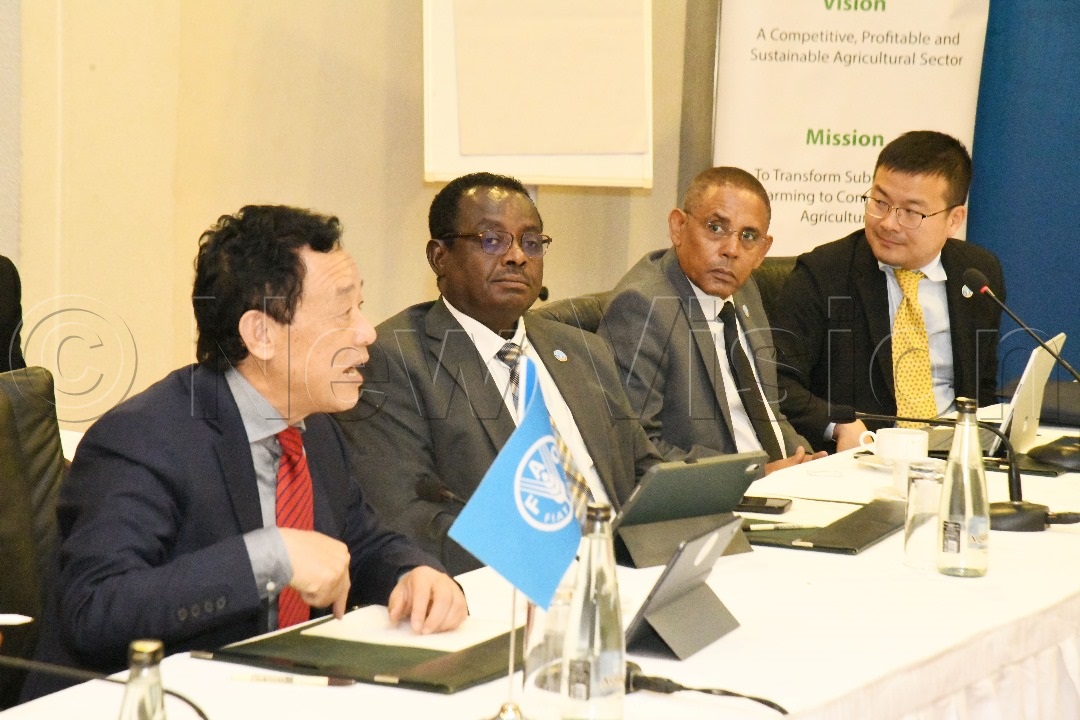
Dr Qu Dongyu, Director General, FAO, Abebe Haile Gabriel, Assistant Director General for Africa; Yergalem Taages Baraki, Country Representative to Uganda; and Shen Hong, Assistant to the Director General, during the meeting at Kampala Serena Hotel on Tuesday, July 22, 2025. (Credit: Mpalanyi Ssentongo)
In response, Dongyu assured the Government representatives of his organisation's support through the different FAO programmes through the country office.
The three-day visit that ends today, Wednesday, was aimed at strengthening collaboration with the Government of Uganda, development partners and highlighting FAO’s ongoing support to National priorities in agriculture, forestry, and food systems.
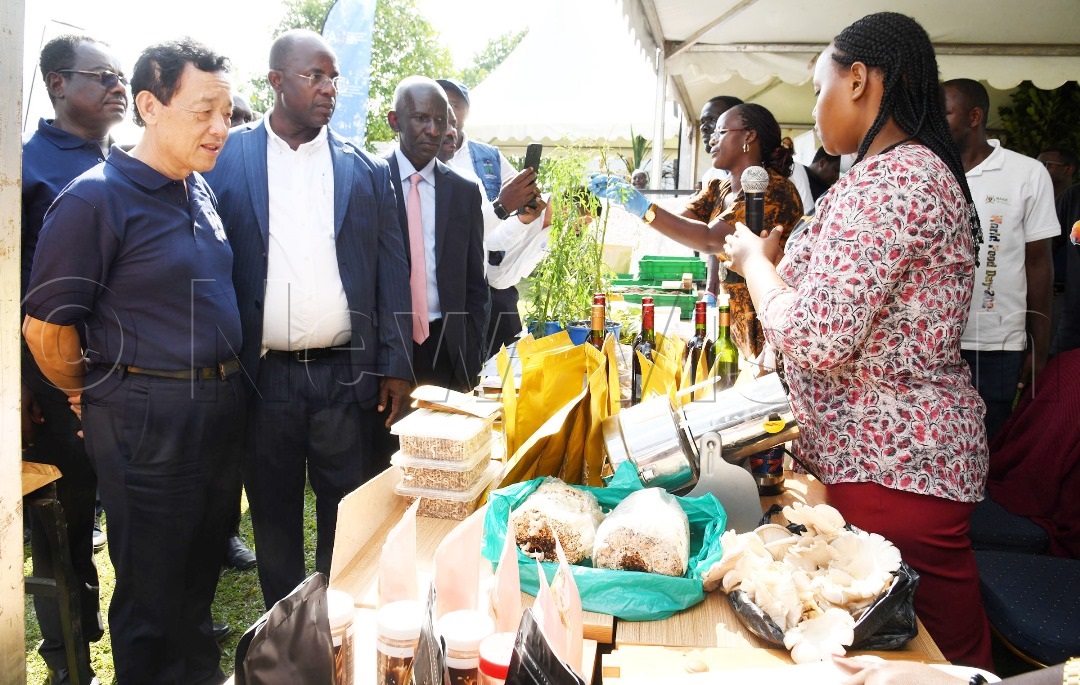
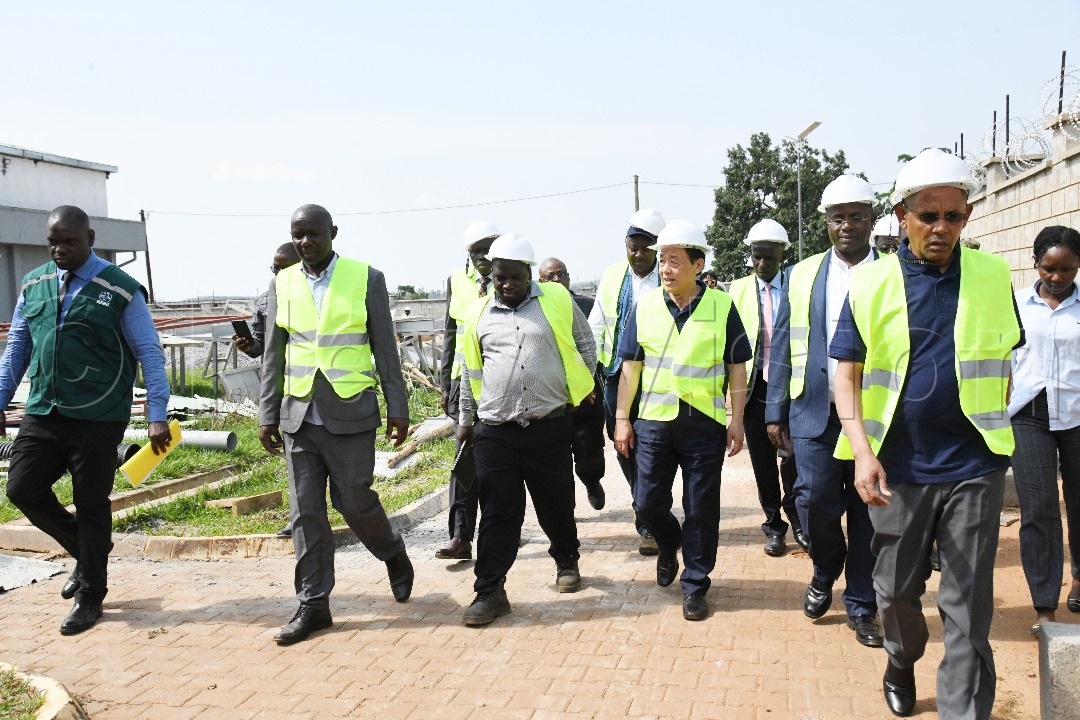
Touring NARO Anti-Tick Vaccine production facility. (Credit: Mpalanyi Ssentongo)
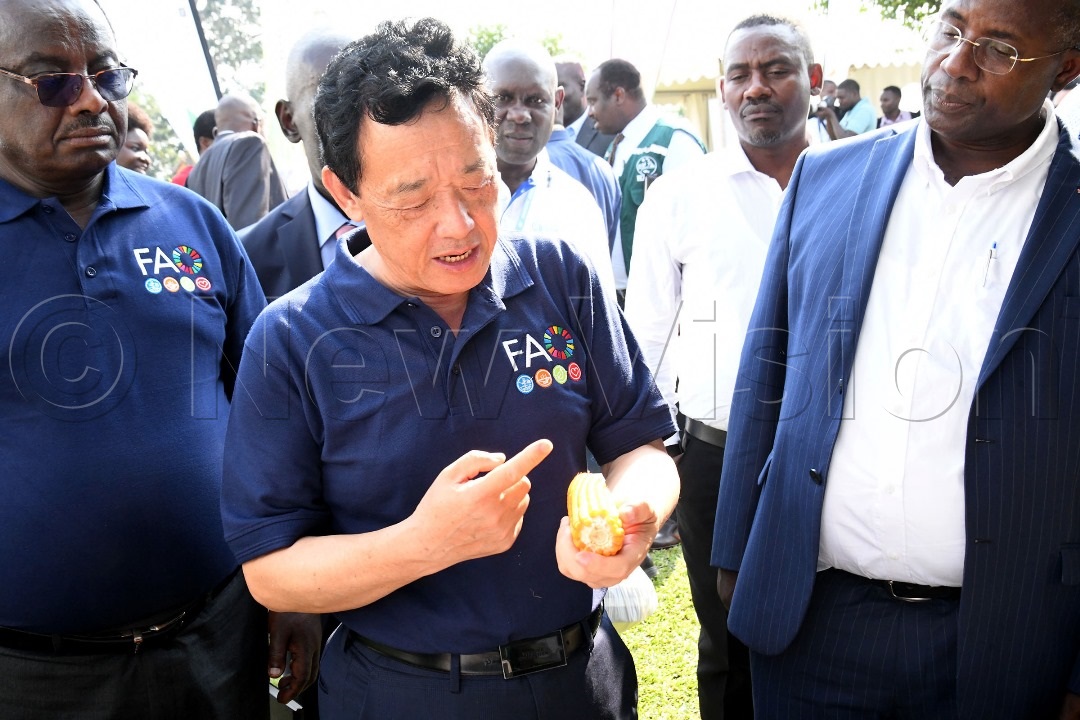
FAO director general during a tour of the National Livestock Resources Research Institute (NaLIRRI),Namulonge. (Credit: Mpalanyi Ssentongo)
From Serena, he also visited the National Livestock Resources Research Institute, where he was taken through the ZERO waste management facility in the livestock section, visited the anti-vaccine hub and also interfaced with researchers on various products, including sweet potatoes, beans, rice, vaccine development and aflasafe technology for post-harvest handling of grains.
Earlier on Monday, he visited President Yoweri Museveni at State House Entebbe, where the two leaders agreed to work together to advance the food systems agenda in Uganda and Africa as a whole.
